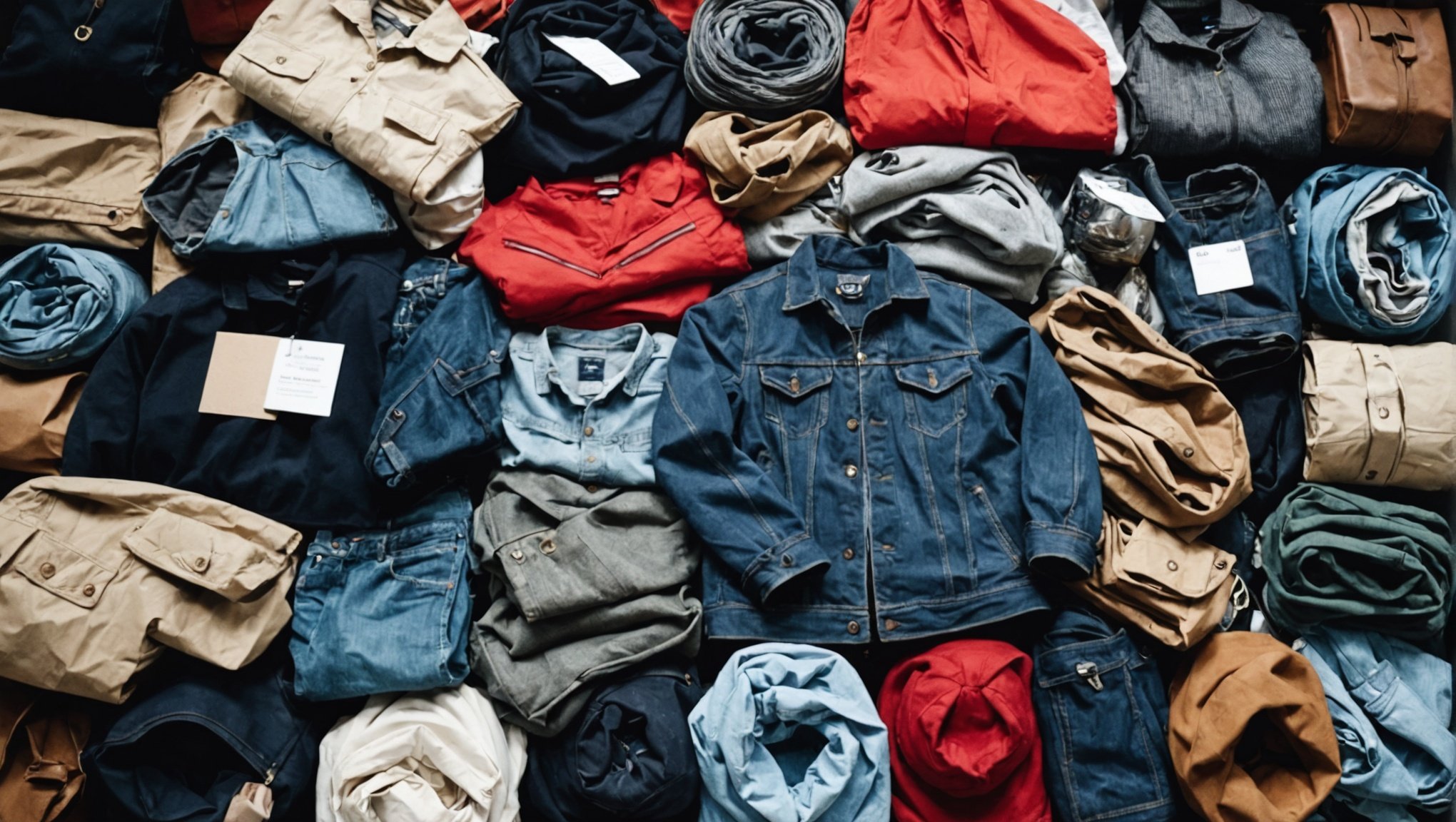Sustainable fashion isn't just a trend; it’s a commitment to the planet. Recycled apparel offers a practical solution to reduce environmental impact while staying stylish. When considering your next purchase, reflect on factors like materials, sourcing, and ethical production. Understanding these elements empowers you to make informed choices that align with your values. This guide will explore key considerations for buying sustainable fashion and how to embrace eco-friendly practices through your wardrobe.
Understanding Sustainable Fashion
Delving into the essentials of eco-friendly apparel and its significance.
Also read : Essential Tips for Selecting Eco-Friendly Swimwear Brands for Your Vacation Wardrobe
Definition of Sustainable Fashion
Sustainable fashion is a movement and process aimed at fostering change in fashion products and the fashion system towards greater ecological integrity and social justice. It involves creating eco-friendly apparel that minimizes harm to the environment and promotes ethical labor practices. This approach considers the entire lifecycle of a product, from design and sourcing to production, consumption, and disposal.
Importance of Eco-Friendly Choices
Making eco-friendly choices in fashion is crucial for reducing the industry's environmental impact. Traditional fashion practices often involve harmful chemicals, excessive water usage, and significant waste. By opting for sustainable alternatives, consumers can help mitigate these issues. This not only supports the planet but also encourages brands to adopt more responsible practices.
Have you seen this : Discover Heart-Healthy Workouts That Enhance Muscle Tone: Top Activities for Dual Benefits
- Sustainable fashion basics:
- Use of organic or recycled materials
- Ethical labor practices
- Reduced carbon footprint
Environmental Impact of Traditional Fashion
The environmental impact of traditional fashion is profound. The industry is one of the largest polluters, contributing to water pollution, greenhouse gas emissions, and landfill waste. By understanding and embracing sustainable fashion basics, individuals can make informed decisions that support a healthier planet and a more equitable industry.
Key Factors to Consider When Buying Recycled Apparel
Making informed and eco-conscious shopping decisions.
Material Quality and Durability
When buying recycled clothing, it's essential to evaluate the material quality and durability. Recycled fibers often come from diverse sources, affecting their strength and longevity. Look for garments with robust construction to ensure they withstand wear and tear. High-quality recycled materials, like those made from recycled polyester or organic cotton, often provide the same durability as their non-recycled counterparts.
Certifications and Labels
Certifications and labels play a crucial role in identifying sustainable practices. Look for labels such as the Global Recycle Standard (GRS) or OEKO-TEX, which indicate adherence to eco-friendly standards. These certifications assure that the clothing is genuinely recycled and produced under ethical manufacturing processes.
Brand Transparency and Ethical Manufacturing
Transparency is a key factor in eco-conscious shopping. Reputable brands disclose their sourcing and manufacturing processes, allowing consumers to make informed decisions. Ethical manufacturing involves fair labor practices and reduced environmental impact. Prioritize brands that openly share their commitment to sustainability, ensuring that their recycled apparel aligns with your values.
- Checklist for Recycled Apparel:
- Verify material durability
- Check for sustainability certifications
- Assess brand transparency
By considering these factors, you can contribute to a more sustainable fashion industry while enjoying quality clothing.
Types of Recycled Materials in Fashion
Exploring the diversity of recycled fabrics and their role in eco-friendly fashion.
Overview of Common Recycled Materials
In the realm of sustainable textiles, several recycled materials stand out for their eco-friendly attributes. Recycled polyester, derived from plastic bottles, is a popular choice due to its versatility and durability. Recycled cotton offers a soft and breathable option, often blended with other materials to enhance strength. Another innovative material is recycled nylon, commonly sourced from discarded fishing nets and other waste, providing a robust and flexible fabric.
Benefits of Using Recycled Fabrics
Utilizing recycled fabrics brings numerous advantages. They significantly reduce the reliance on virgin resources, lowering the environmental footprint. For instance, producing recycled polyester consumes less energy than virgin polyester, while also minimizing waste. Additionally, these materials often require less water and chemicals during production, further contributing to ecological preservation. Consumers can enjoy quality garments while supporting sustainable practices.
Comparisons of Different Recycled Materials
When comparing recycled materials, it's essential to consider their performance and sustainability. Recycled polyester is known for its resilience and moisture-wicking properties, ideal for activewear. Recycled cotton provides comfort and breathability, suitable for casual wear. Meanwhile, recycled nylon offers high durability, perfect for outdoor gear. Each material presents unique benefits, allowing consumers to choose based on their specific needs and environmental values.
- Key Recycled Fabrics:
- Recycled polyester
- Recycled cotton
- Recycled nylon
Actionable Tips for Buying Sustainable Fashion
Enhance your sustainable shopping skills with these practical insights.
Researching Brands and Their Sustainability Practices
To make eco-friendly purchases, start by researching brands' sustainability practices. Check if they use recycled materials or support ethical labor. Explore their websites for sustainability reports or certifications like Fair Trade. This ensures your money supports mindful consumption.
Understanding the Life Cycle of Fashion Items
Grasping the life cycle of fashion items aids in mindful consumption. Consider how a product is made, used, and disposed of. Opt for garments with a low environmental impact throughout their life cycle. This awareness helps in making informed purchasing decisions that align with sustainable values.
Tips for Making Informed Purchasing Decisions
To enhance your sustainable shopping experience, follow these tips:
- Prioritize quality over quantity to reduce waste.
- Choose timeless designs that remain stylish beyond trends.
- Support local artisans to minimize carbon footprint.
- Assess durability to ensure long-lasting wear.
By integrating these sustainable shopping tips into your routine, you contribute to a more eco-friendly fashion industry. Remember, each purchase is a step towards a more sustainable future. Embrace these practices to make a positive impact on the planet while enjoying quality fashion.
Highlighting Sustainable Fashion Brands
Exploring the forefront of eco-conscious innovation in fashion.
Examples of Leading Brands in Recycled Apparel
Several eco-conscious brands are setting benchmarks in the realm of sustainable fashion. Patagonia, known for its commitment to environmental stewardship, utilizes recycled materials extensively, particularly in its outerwear. Similarly, Eileen Fisher emphasizes ethical clothing by incorporating recycled fibers and promoting circular fashion.
Criteria for Selecting Sustainable Brands
When choosing sustainable fashion companies, consider the following criteria:
- Use of recycled materials
- Transparency in ethical clothing practices
- Commitment to reducing environmental impact
- Engagement in community initiatives
These factors ensure that a brand genuinely supports sustainable fashion principles.
Case Studies of Successful Sustainable Fashion Initiatives
A notable example is Adidas' Parley initiative, which transforms ocean plastic into recycled apparel. This project not only highlights the potential of eco-conscious brands but also showcases innovation in sustainable fashion. Another case is Stella McCartney, a pioneer in using recycled materials and advocating for animal-free products. These initiatives demonstrate the impact of sustainable fashion companies on advancing ethical and environmental goals.
By focusing on ethical clothing and recycled apparel, these brands provide consumers with choices that align with eco-friendly values, driving the industry towards a more sustainable future.
The Importance of Ethical Consumption in Fashion
Empowering choices for a sustainable future in fashion.
The Role of Consumers in Promoting Sustainability
Consumers play a pivotal role in fostering ethical fashion consumption. By prioritizing responsible shopping, individuals can drive demand for sustainable practices within the industry. This shift encourages brands to adopt eco-friendly production methods, ultimately reducing the environmental impact of fashion. Engaging in ethical consumption means choosing products that align with values of sustainability and fairness.
Benefits of Supporting Ethical Brands
Supporting ethical brands offers numerous advantages. Firstly, it ensures that workers receive fair wages and work in safe conditions, promoting social justice. Secondly, it reduces the ecological footprint by encouraging the use of sustainable materials and methods. Lastly, it empowers consumers to make a positive impact on the planet. By embracing responsible shopping, individuals contribute to a more equitable and environmentally friendly fashion industry.
- Key Benefits of Ethical Consumption:
- Promotes fair labor practices
- Reduces environmental impact
- Supports sustainable innovation
Encouraging a Shift Towards Sustainable Consumption Practices
To encourage a shift towards sustainable consumption practices, consumers should be informed and proactive. This involves researching brands, understanding their sustainability initiatives, and making conscious purchasing decisions. By advocating for ethical fashion consumption, consumers can collectively influence the industry, promoting a future where fashion is both stylish and sustainable.











